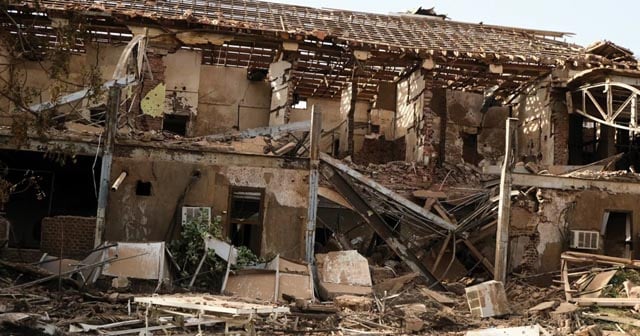
KHARTOUM, May 31, 2025 (BSS/AFP) - Sudan's paramilitary Rapid Support Forces bombarded the key southern city of El-Obeid on Friday, killing six people in a hospital, as doctors in the capital Khartoum fought to contain a cholera outbreak.
World Health Organization chief Tedros Adhanom Ghebreyesus said they were "appalled" by the latest strike, adding: "Attacks on health must stop. We call for protection of all health infrastructure and health personnel. The best medicine is peace."
An army source told AFP the drone strike on the Social Insurance Hospital, which also wounded 12, was part of a simultaneous strike on residential areas of the city with heavy artillery.
The bombardment had also hit a second hospital in the city centre, the source added.
A medical source at El-Obeid Hospital, the city's main facility, confirmed the toll.
El-Obeid, a strategic city 400 kilometres (250 miles) southwest of Khartoum, was besieged by the RSF for nearly two years before the regular army broke the siege in February.
It was one of a series of counteroffensives that later saw the army recapture Khartoum.
The city, which the RSF has repeatedly bombarded, is a key staging post on the army's supply route to the west, where the besieged city of El-Fasher is the only state capital in the vast Darfur region still under its control.
The RSF and the army have clashed repeatedly along the road between El-Obeid and El-Fasher in recent weeks.
On Thursday, the paramilitaries said they retook the town of Al-Khoei, around 100 kilometres west of El-Obeid, after the army recaptured it earlier this month.
The war between army chief Abdel Fattah al-Burhan and his former deputy, RSF commander Mohamed Hamdan Daglo, has killed tens of thousands of people and uprooted 13 million since it erupted in April 2023.
The United Nations says the conflict has created the world's biggest hunger and displacement crises.
- Cholera crisis -
In Khartoum, where a cholera outbreak has killed dozens this week, doctors struggled to treat patients with dwindling supplies as the disease rapidly spread.
"We are using all available means to limit its spread and treat infected patients," Dr Hamad Adel, with Doctors Without Borders (MSF), told AFP from Bashair Hospital.
Patients lay on rusted metal beds, receiving IV drips in a makeshift isolation centre fashioned out of a tent in the sweltering 40 degree Celsius (104 Fahrenheit) heat, AFPTV footage showed.
In a dedicated section, children lay side by side, emaciated and exhausted in the midst of what aid groups warn is a public health disaster.
Cholera, an acute diarrhoeal illness caused by ingesting contaminated water or food, is easily preventable and treatable with clean water, sanitation and medical care -- all now in short supply in Khartoum.
In other overwhelmed hospitals across the war-ravaged capital, medics have been forced to lay patients on floors in hallways and courtyards.
The outbreak has been blamed on power outages caused by RSF drone attacks on the capital's power stations, which cut access to clean water for millions across the city this month.
Cholera is endemic to Sudan, but outbreaks have become worse and more frequent since the war has decimated the country's already fragile health system.
Up to 90 percent of hospitals in the conflict's main battlegrounds have at some point been forced shut, according to the doctors' union.
- Aid facility shelled -
The war has effectively split Sudan in two, with the army holding the centre, east and north, while the paramilitaries and their allies control nearly all of Darfur and parts of the south.
The RSF has failed to seize El-Fasher, which would consolidate its hold on Darfur, but has continued to pound the city, with starving civilians trapped inside.
The UN World Food Programme said Thursday its facility had been "hit and damaged by RSF repeated shelling".
The United States -- which has sanctioned both Burhan and Daglo -- has condemned the bombing.
"Safe, sustained humanitarian access is critical and violations that endanger civilians and relief efforts demand serious attention," said Senior Africa Advisor Massad Boulos.
Since losing Khartoum in March, the RSF has adopted a two-pronged strategy: long-range drone strikes on army-held cities accompanied by a counteroffensive in the south.
On Thursday, the paramilitaries announced they had captured Dibeibat in South Kordofan state.
Swathes of South Kordofan are controlled by a rebel group allied with the RSF.